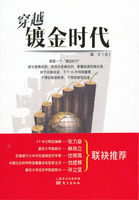His love of the French language was of a peculiar kind. He loved it as having been for a century the vehicle of all the polite nothings of Europe, as the sign by which the freemasons of fashion recognised each other in every capital from Petersburgh to Naples, as the language of raillery, as the language of anecdote, as the language of memoirs, as the language of correspondence. Its higher uses he altogether disregarded. The literature of France has been to ours what Aaron was to Moses, the expositor of great truths which would else have perished for want of a voice to utter them with distinctness. The relation which existed between Mr. Bentham and M. Dumont is an exact illustration of the intellectual relation in which the two countries stand to each other. The great discoveries in physics, in metaphysics, in political science, are ours. But scarcely any foreign nation except France has received them from us by direct communication. Isolated by our situation, isolated by our manners, we found truth, but we did not impart it. France has been the interpreter between England and mankind.
In the time of Walpole, this process of interpretation was in full activity. The great French writers were busy in proclaiming through Europe the names of Bacon, of Newton, and of Locke. The English principles of toleration, the English respect for personal liberty, the English doctrine that all power is a trust for the public good, were making rapid progress. There is scarcely anything in history so interesting as that great stirring up of the mind of France, that shaking of the foundations of all established opinions, that uprooting of old truth and old error. It was plain that mighty principles were at work whether for evil or for good. It was plain that a great change in the whole social system was at hand. Fanatics of one kind might anticipate a golden age, in which men should live under the simple dominion of reason, in perfect equality and perfect amity, without property, or marriage, or king, or God. A fanatic of another kind might see nothing in the doctrines of the philosophers but anarchy and atheism, might cling more closely to every old abuse, and might regret the good old days when St.
Dominic and Simon de Montfort put down the growing heresies of Provence. A wise man would have seen with regret the excesses into which the reformers were running; but he would have done justice to their genius and to their philanthropy. He would have censured their errors; but he would have remembered that, as Milton has said, error is but opinion in the making. While he condemned their hostility to religion, he would have acknowledged that it was the natural effect of a system under which religion had been constantly exhibited to them in forms which common sense rejected and at which humanity shuddered. While he condemned some of their political doctrines as incompatible with all law, all property, and all civilisation, he would have acknowledged that the subjects of Lewis the Fifteenth had every excuse which men could have for being eager to pull down, and for being ignorant of the far higher art of setting up. While anticipating a fierce conflict, a great and wide-wasting destruction, he would yet have looked forward to the final close with a good hope for France and for mankind.
Walpole had neither hopes nor fears. Though the most Frenchified English writer of the eighteenth century, he troubled himself little about the portents which were daily to be discerned in the French literature of his time. While the most eminent Frenchmen were studying with enthusiastic delight English politics and English philosophy, he was studying as intently the gossip of the old court of France. The fashions and scandal of Versailles and Marli, fashions and scandal a hundred years old, occupied him infinitely more than a great moral revolution which was taking place in his sight. He took a prodigious interest in every noble sharper whose vast volume of wig and infinite length of riband had figured at the dressing or at the tucking up of Lewis the Fourteenth, and of every profligate woman of quality who had carried her train of lovers backward and forward from king to parliament, and from parliament to king, during the wars of the Fronde. These were the people of whom he treasured up the smallest memorial, of whom he loved to hear the most trifling anecdote, and for whose likenesses he would have given any price.
Of the great French writers of his own time, Montesquieu is the only one of whom he speaks with enthusiasm. And even of Montesquieu he speaks with less enthusiasm than of that abject thing, Crebillon the younger, a scribbler as licentious as Louvet and as dull as Rapin. A man must be strangely constituted who can take interest in pedantic journals of the blockades laid by the Duke of A. to the hearts of the Marquise de B. and the Comtesse de C. This trash Walpole extols in language sufficiently high for the merits of Don Quixote. He wished to possess a likeness of Crebillon; and Liotard, the first painter of miniatures then living, was employed to preserve the features of the profligate dunce. The admirer of the Sopha and of the Lettres Atheniennes had little respect to spare for the men who were then at the head of French literature. He kept carefully out of their way. He tried to keep other People from paying them any attention. He could not deny that Voltaire and Rousseau were clever men; but he took every opportunity of depreciating them. Of D'Alembert he spoke with a contempt which, when the intellectual powers of the two men are compared, seems exquisitely ridiculous. D'Alembert complained that he was accused of having written Walpole's squib against Rousseau. "I hope," says Walpole, "that nobody will attribute D'Alembert's works to me." He was in little danger.















